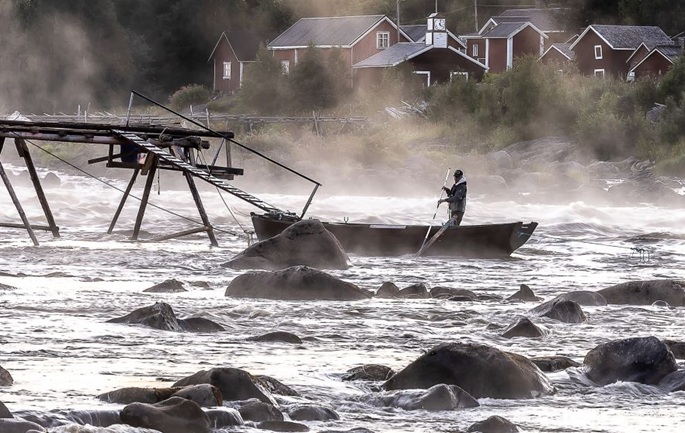Torne River dipnet fishing proposed for UNESCO cultural heritage list
Published : 01 Apr 2025, 03:11
A joint Finnish-Swedish proposal prepared for dipnet fishing in the Torne River rapids for inscription on UNESCO's Representative List of the Intangible Cultural Heritage of Humanity, said the Ministry of Education and Culture in a press release on Monday.
The decision on inscription is due in December 2026.
Finland is a joint applicant in the submission coordinated by Sweden that aims to have dipnet fishing in the Torne River rapids inscribed on UNESCO's List of Intangible Cultural Heritage of Humanity.
The Finnish Heritage Agency has prepared a submission titled “Torne River Dipnet Fishing – Living heritage across the Swedish-Finnish border” in collaboration with the Museum of Torne Valley and various dipnet fishing communities.
“The tradition of dipnet fishing along the Torne River is a perfect example of how a cultural community has emerged, crossing national borders,” said Minister of Science and Culture Mari-Leena Talvitie.
“The joint submission by Sweden and Finland highlights coexistence with nature, human ingenuity in fishing and centuries-long peaceful coexistence and linguistic diversity based on these elements,” Talvitie added.
For the purposes of inscription of the element, dipnet fishing along River Torne has been demonstrated and satisfies the criteria set out in the Convention for the Safeguarding of the Intangible Cultural Heritage of Humanity.
The key sites where the element is practised are Kukkolankoski and Matkakoski downstream of the River Torne. It is a living tradition that is commonly practised in both Sweden and Finland, on both sides of the river. The rights to dipnet fishing are held by about 75 farmsteads or families, and about 150 people actively practise the tradition.
UNESCO's Representative List of the Intangible Cultural Heritage of Humanity aims to help demonstrate the diversity of this heritage and raise awareness about its importance, and to advocate dialogue that respects cultural diversity. The list currently comprises close to 800 elements.
Finland's earlier elements on UNESCO lists comprise the Finnish tradition of sauna bathing and Kaustinen folk fiddle playing.
In addition, Nordic clinkerboat traditions and the knowledge, craft and skills of handmade glass production have been inscribed as multinational elements that include Finland.


